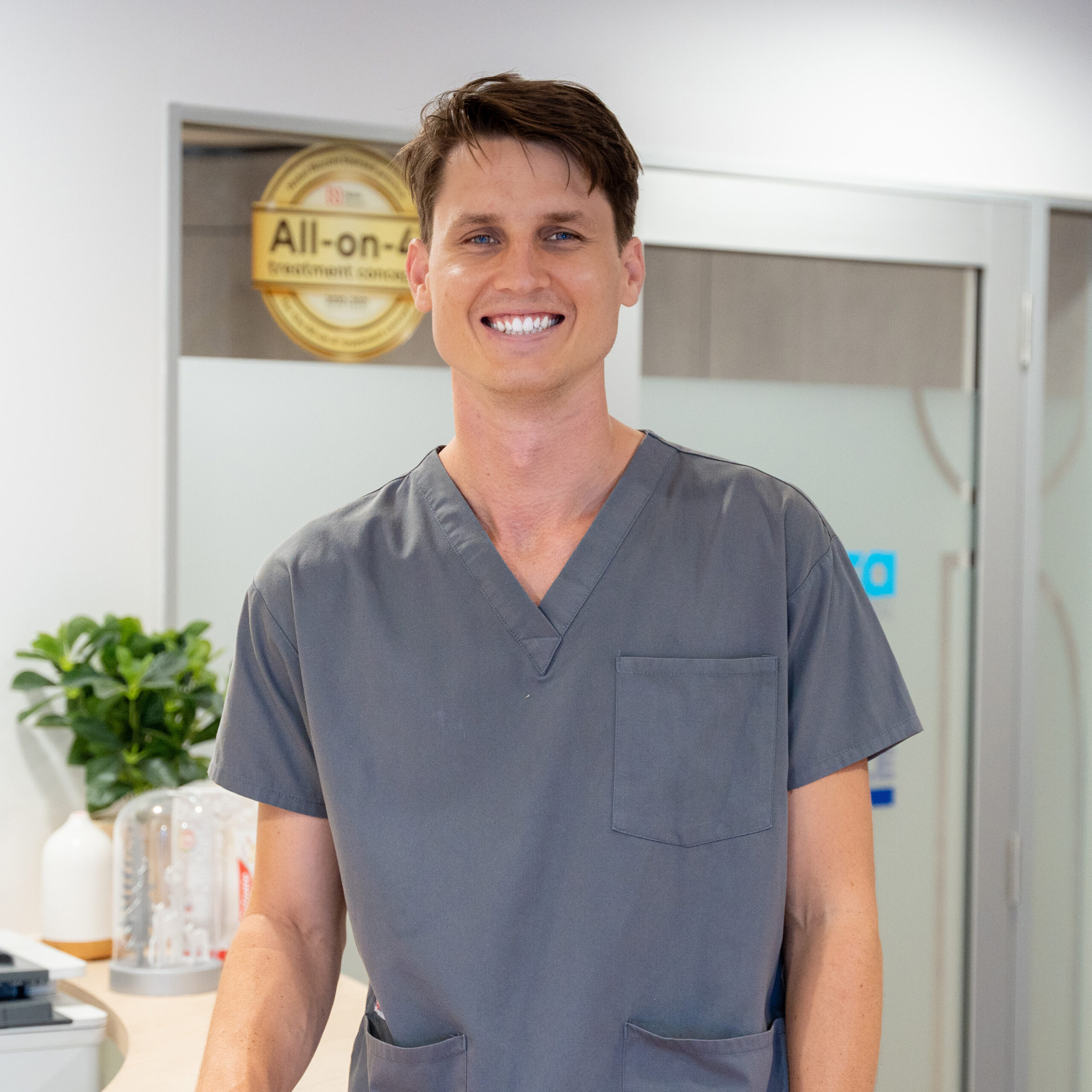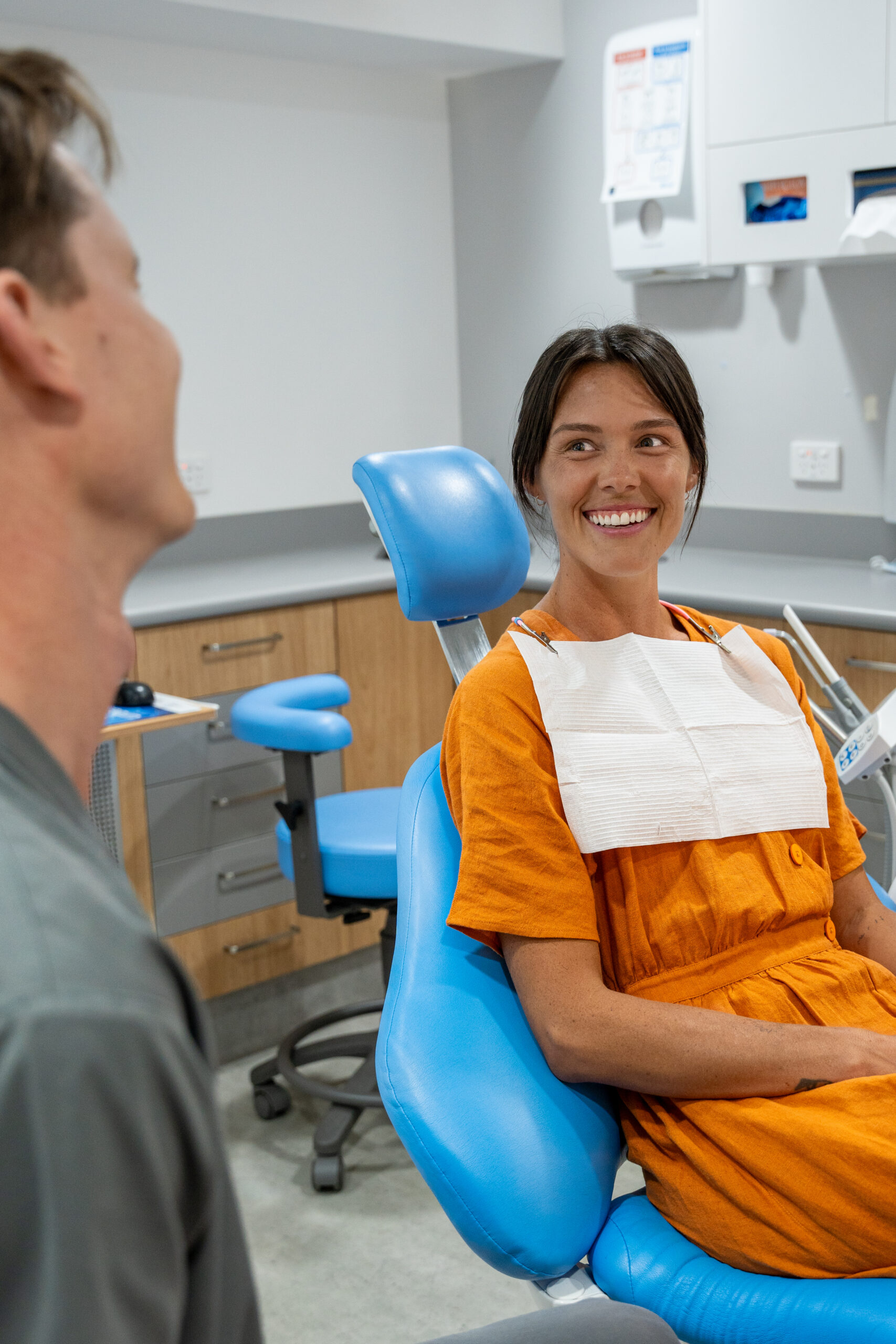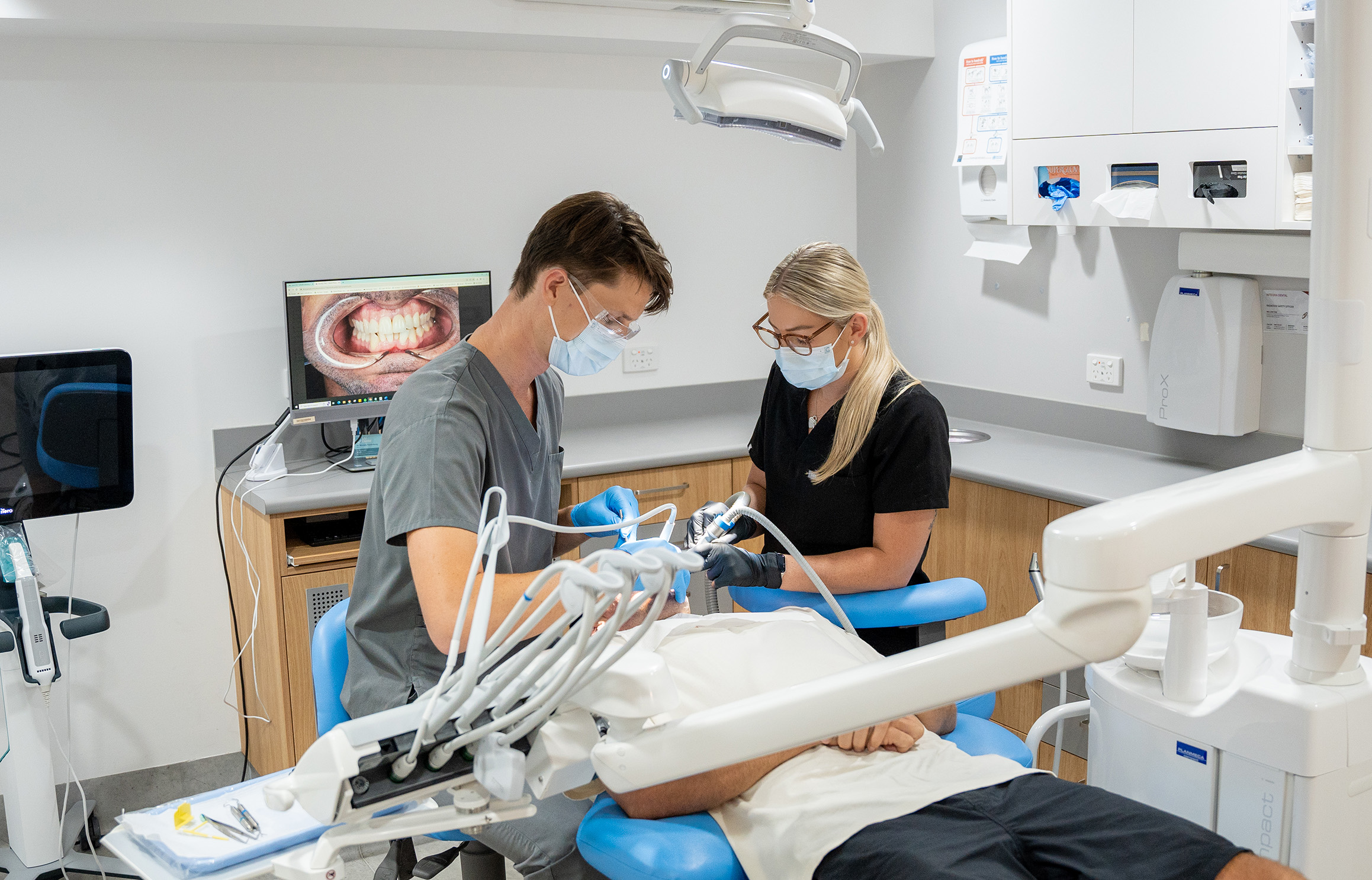Considering general anaesthesia (GA) for your dental procedure involves careful evaluation of various factors. Below are some factors that may indicate GA as a suitable option, as well as those that might suggest it’s not the best fit:
Good Candidates for General Anaesthetic Dentistry:
- Complex Dental Needs: Patients requiring extensive procedures such as multiple extractions, extensive restorative work (e.g., multiple fillings), or dental implant surgeries may benefit from GA to ensure comfort and optimal results.
- Young Adult to Middle-Aged Patients: Generally, healthy patients between the ages of 15 and 75 are good candidates for GA, as they tend to tolerate anaesthesia well and have lower risks of complications.
- Dental Anxiety: Patients with high dental anxiety may find GA beneficial, as it provides complete sedation and eliminates any discomfort or anxiety during the procedure.
- Special Needs Compliance: Patients with special needs who can safely undergo GA and are compliant with pre-operative instructions may be suitable candidates. GA can offer a controlled environment for treatment, ensuring their comfort and safety.
Factors That May Not Make a Patient a Good Fit for GA Dentistry:
- Minor Dental Procedures: Patients requiring very little treatment such as a routine clean may not need GA, as these can typically be performed with local anaesthesia or sedation. These can still be done under GA, but all other avenues should first be explored.
- High Risk for Complications: Patients with significant medical issues that increase the risk of complications under GA, such as severe cardiovascular disease, uncontrolled diabetes, or respiratory problems, may not be suitable candidates.
- Advanced Age with Significant Health Issues: Elderly patients over 75 or those with multiple comorbidities may have higher risks associated with GA, and alternative treatment options should be considered based on their overall health status.
- Unwillingness to Undergo GA: Patients who are unwilling, apprehensive or too uncooperative to undergo GA without physical restraint despite its potential benefits may not be suitable candidates. Alternative sedation options or non-pharmacological interventions should be explored in such cases.
- Financial Constraints: GA procedures typically involve additional costs compared to procedures performed under local anaesthesia or conscious sedation. Patients with financial constraints may need to consider alternative treatment options based on their budget and insurance coverage.
It’s essential for patients to discuss their individual needs, concerns, and medical history with their dentist or anaesthetist to determine the most appropriate sedation option for their dental procedure. By considering these factors carefully, patients can make informed decisions regarding their dental care and anaesthesia options.







